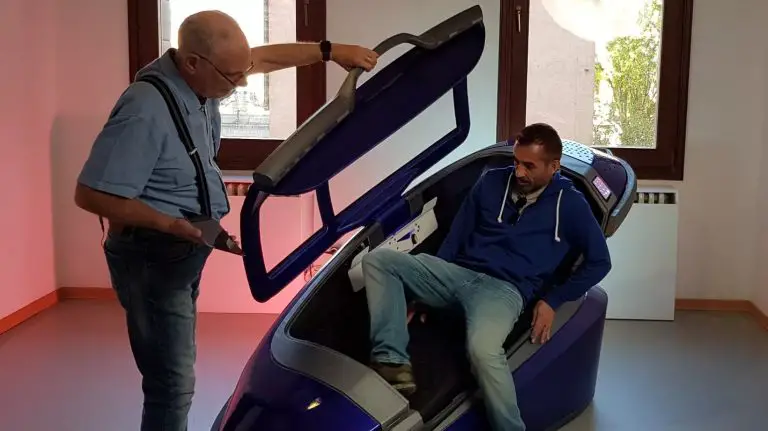The “suicide pod,” known as Sarco, is set to be used by a British couple for the first time, drawing significant attention and sparking debate across the UK. Designed by euthanasia advocate Dr. Philip Nitschke, the pod allows users to end their lives peacefully by inducing hypoxia using nitrogen gas. This process is intended to provide a quick and painless death, offering an alternative for individuals suffering from terminal illnesses or severe health conditions.
The couple, whose identities remain private, reportedly decided to use the Sarco pod due to their declining health. After researching end-of-life options, they contacted Nitschke to explore the possibility of using the device. While Sarco’s use is legal in Switzerland, where assisted suicide is permitted, its introduction to the UK has raised ethical concerns and questions about the potential consequences of making such technology available.

Critics argue that devices like Sarco could lead to the normalization of suicide or its potential misuse by vulnerable individuals. There are concerns that the pod may shift the focus away from improving palliative care and support systems for those with terminal illnesses. Many believe that efforts should be directed toward providing more compassionate care rather than offering tools for assisted death.
Dr. Nitschke, while defending the Sarco’s role in giving individuals control over their end-of-life decisions, has issued a stark warning to anyone considering its use. “Once the button is pressed, there is no way back,” he said, emphasizing the gravity of the decision and the irreversible nature of the act. He urged users to fully understand the consequences before proceeding.
As debate over the Sarco pod intensifies, it has prompted broader discussions about the UK’s laws on assisted suicide. Many are calling for a reevaluation of the legal and ethical frameworks surrounding end-of-life decisions in light of this new technology.




